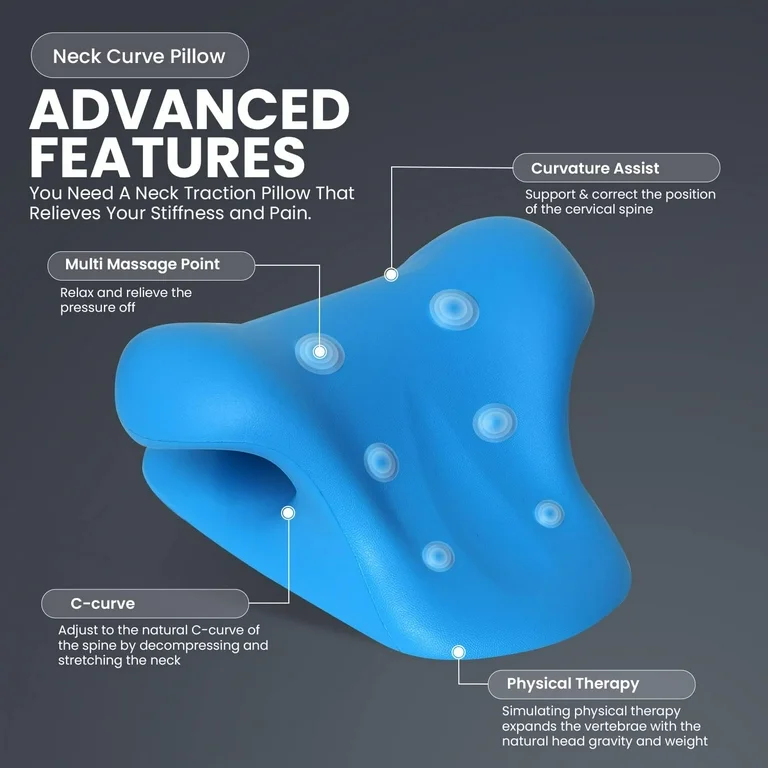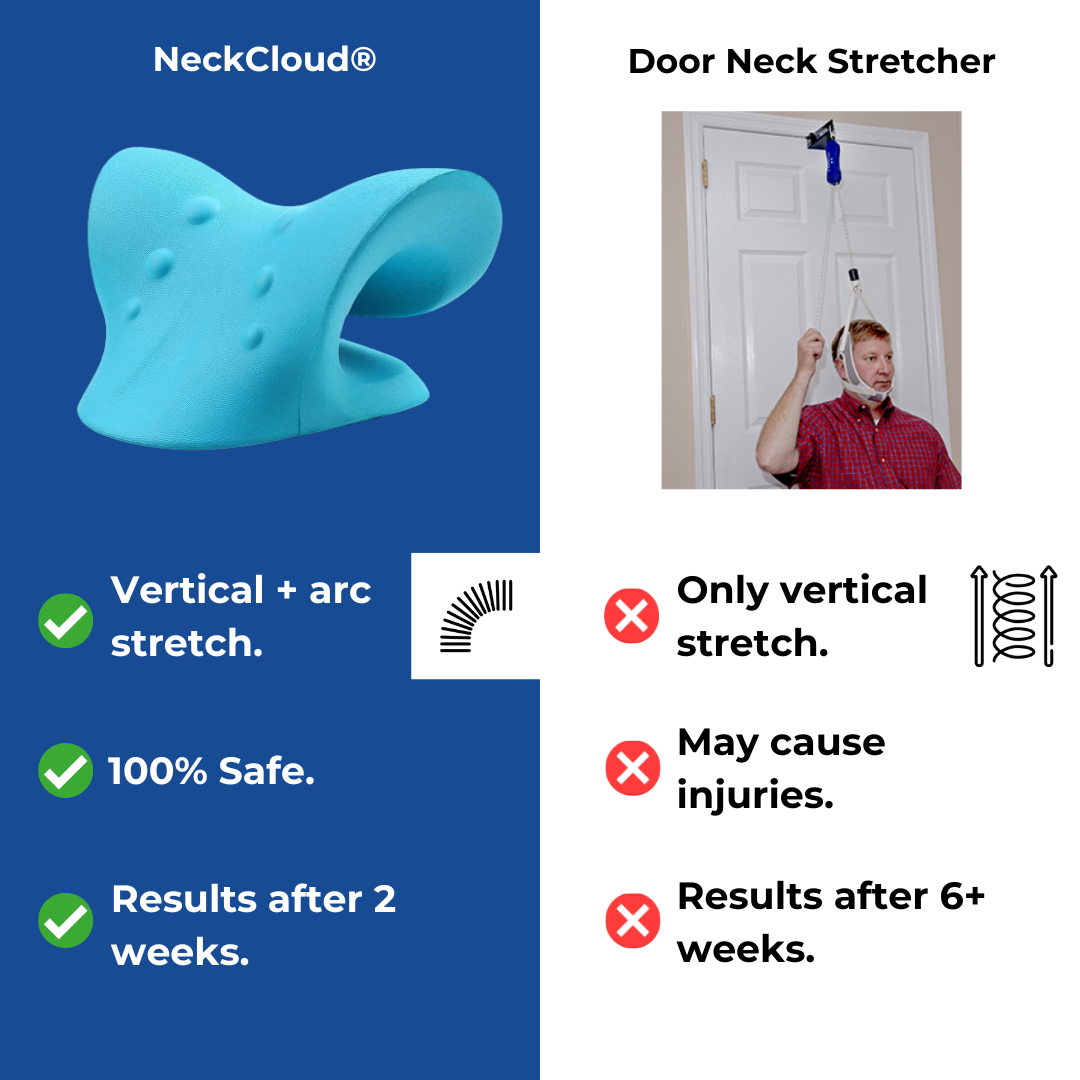Neck Cloud: Ergonomic Layout for Maximum Comfort and Discomfort Reduction
Neck Cloud: Ergonomic Layout for Maximum Comfort and Discomfort Reduction
Blog Article
The Impact of Stress And Anxiety on Neck Discomfort: Methods for Minimizing Tension and Pain
In today's busy world, it's no secret that tension has come to be a common aspect in the beginning and exacerbation of neck discomfort. Join us on a journey to unravel the influence of stress on neck discomfort and uncover effective methods to ease discomfort and boost total high quality of life.
Understanding Stress-Related Neck Discomfort
Neck pain is a typical grievance that can often be credited to tension. Stress-related neck pain can manifest as stress, rigidity, or pain in the neck and shoulder area. The link between stress and anxiety and neck pain depends on the body's physiological action to stress, which can lead to muscular tissue tension and rigidity in the neck muscles. Persistent anxiety can cause consistent neck discomfort and aggravate status quo like cervical spondylosis or muscle mass pressures.

Identifying Common Stress Areas
Regularly experienced by individuals under tension, tension areas in the body can provide useful insights into the physical manifestations of emotional strain. One typical tension location is the neck, where tension often shows up physically. Stress migraines, stiff neck muscle mass, and restricted series of activity are common symptoms of stress-related neck stress. The shoulders are another common area where stress builds up. Stress and anxiety can trigger the muscles in the shoulders to tighten, causing discomfort and discomfort. Furthermore, the upper back is vulnerable to tension accumulation, especially in individuals who experience persistent anxiety. Poor stance and long term resting can intensify tension in this area. The jaw is additionally a common place for stress-related tension, as many individuals squeeze their jaw or grind their teeth when worried. Knowing these common stress locations can assist individuals identify the physical signs of tension and take actions to address them prior to they escalate right into chronic discomfort or discomfort.
Applying Relaxation Strategies
To efficiently take care of stress-related stress in the body, implementing relaxation strategies is essential. Leisure strategies are beneficial devices for lowering neck discomfort brought on by anxiety. Deep breathing workouts can help soothe the mind and loosen up tense muscular tissues in the neck and shoulders (neck cloud). Practicing mindfulness reflection can additionally be valuable in reducing tension and promoting relaxation. Progressive muscle mass leisure, where you methodically tense and after that relax different muscular tissue teams, can launch built-up tension in the neck location. In addition, tasks like yoga and tai chi incorporate both physical activity and leisure, making them efficient practices for decreasing stress and anxiety and neck discomfort. Taking routine breaks throughout the day to stretch and loosen up can prevent muscular tissue tightness and stress from collecting. By including these relaxation strategies into your everyday routine, you can assist handle anxiety levels, lower stress in the neck, and ease discomfort related to stress-induced neck pain.
Including Self-Care Practices
Integrating self-care practices is necessary for maintaining general wellness and managing stress-related neck pain efficiently. Taking part in normal physical activity, such as mild extending workouts or yoga, can aid reduce stress in the neck and shoulders. Exercising good position throughout the day and taking constant breaks from long term sitting or display time can also protect against strain on the neck muscle mass.
Additionally, focusing on ample sleep and developing a consistent sleep regimen can add significantly to lowering anxiety degrees and advertising relaxation. Developing a calming bedtime regimen, such as reviewing a book or taking a warm bath, can aid prepare the mind and body for restful rest. Additionally, maintaining a balanced diet regimen rich in nutrients and remaining hydrated can support overall wellness and decrease inflammation that may worsen neck discomfort.
Integrating mindfulness practices, such as deep breathing exercises or meditation, can assist take care of stress and anxiety and promote relaxation. Requiring time for oneself, involving in leisure activities, and setting boundaries to safeguard individual time are likewise essential facets of self-care that can contribute to lowering stress and relieving neck discomfort.
Looking For Expert Assistance
Exactly how can individuals efficiently resolve persistent neck pain This Site that is affecting their every day life and well-being? Looking for expert aid can be a critical action in handling and alleviating neck discomfort. Consulting with healthcare experts such as chiropractic doctors, physical specialists, or orthopedic experts can provide important understandings and personalized therapy strategies. These professionals can perform detailed analyses to detect the underlying sources of neck discomfort and recommend ideal treatments.
Chiropractic specialists concentrate on back control techniques to boost placement and reduce tension in the neck location. Physical specialists supply targeted workouts and stretches to enhance muscular tissues, boost versatility, and improve total neck feature. Orthopedic professionals can offer sophisticated clinical interventions such as shots or medical choices for serious situations of neck pain.
Final Thought

Stress-related neck pain can manifest as stress, rigidity, or pain in the neck and shoulder location. This Site The connection in between stress and neck discomfort lies in the body's physical reaction to anxiety, which can result in muscle mass tension and rigidity in the neck muscle mass. Stress headaches, tight neck muscular tissues, and restricted range of movement are common signs of stress-related neck tension. By integrating these leisure methods into your daily regimen, you can aid manage anxiety degrees, reduce site here stress in the neck, and ease discomfort linked with stress-induced neck pain.

Report this page